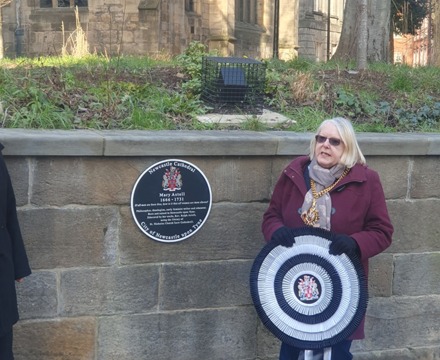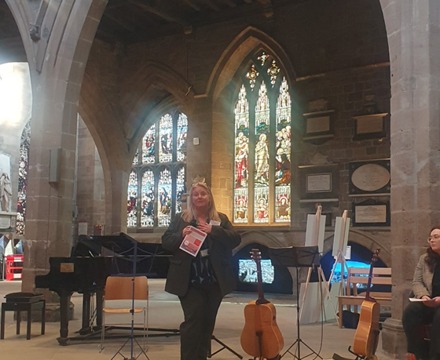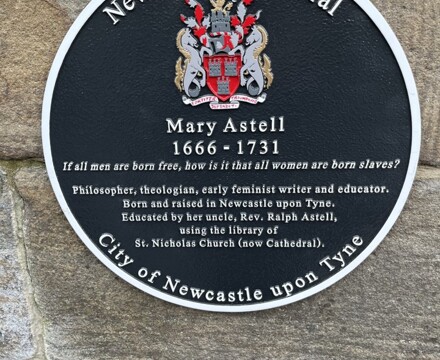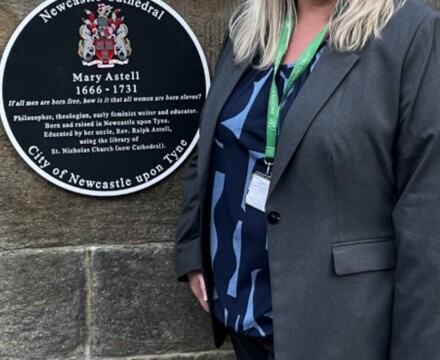Mary Astell Receives Commemoration Plaque for International Women's Day
Return to Latest News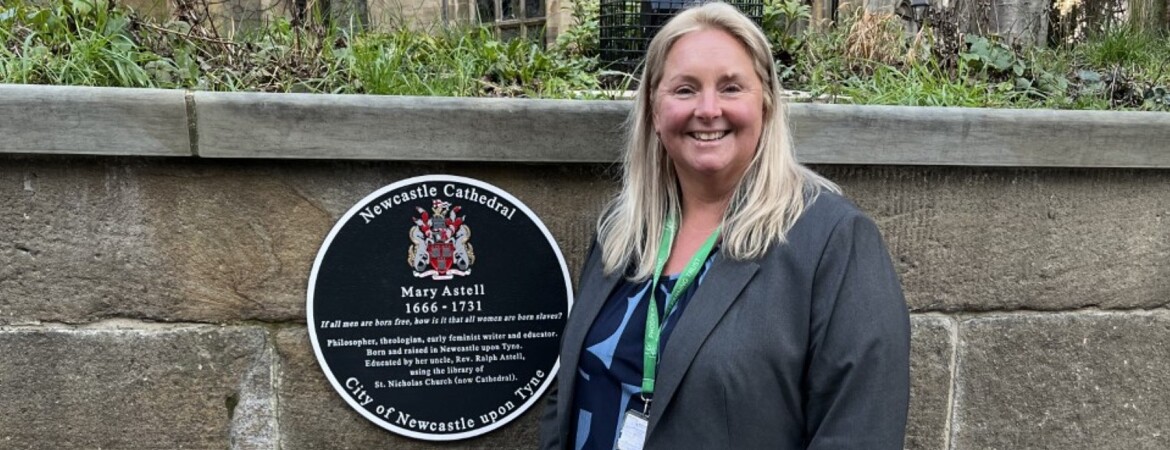
On International Women’s Day, Wednesday 8th March 2023, staff representing Mary Astell Academy and Prosper Learning Trust attended a commemorative event at Newcastle Cathedral to celebrate the life and work of Newcastle born Mary Astell, 18th century author, often described as the "first English feminist".
John Hallworth, Acting Executive Head Teacher, Andrea Spowart, Head of School, Nicola Gill, Assistant Head Teacher and Alix Critchlow, member of the Local Advisory Committee, had been invited to participate in the afternoon’s celebration of the life and works of Mary Astell, after whom the academy is named.
The event was organised by Northumbria University’s Dr Claudine van Hensbergen, Associate Professor of English Literature, and Daisy Winter, Research Associate, in collaboration with Newcastle Cathedral.
The achievements of women took centre stage with a wide variety of contemporary organisations presented their contributions towards ‘Working for Women’, sharing their advocacy and illustrating how they support and engage with women across the Newcastle area.
Andrea Spowart delivered an enlightening talk about Mary Astell Academy and its work to support female pupils when they are in need of intensive support, guidance and therapeutic intervention. Information was shared about how girls are supported to achieve the next steps in their education and training and how they are encouraged to consider career pathways not always seen as traditional routes for them, including working in the sciences, engineering and construction industries.
The culmination of the event was the unveiling of a plaque dedicated to the memory of Mary Astell and her influence, on Amen Corner in the cathedral’s square, by Veronica Dunn, Deputy Lord Mayor of Newcastle, and Jane Hedges, Interim Dean of Newcastle Cathedral.
Mary Astell was a writer, poet and equal opportunities advocate who was born on 12th November 1666 in Newcastle. She advanced ideas that many people in Britain hold today, the belief that by increasing equality and access to education we can build a better and fairer society, one which invests in the happiness of all its people, and doesn’t believe that ignorance is bliss.
She left for London in her twenties and set up a charity school for girls at Chelsea's Royal Hospital. Despite having had no formal education herself, she published a wide variety of work proposing that women are just as rational as men, a radical view at the time, and just as deserving of benefitting from educational provision.
